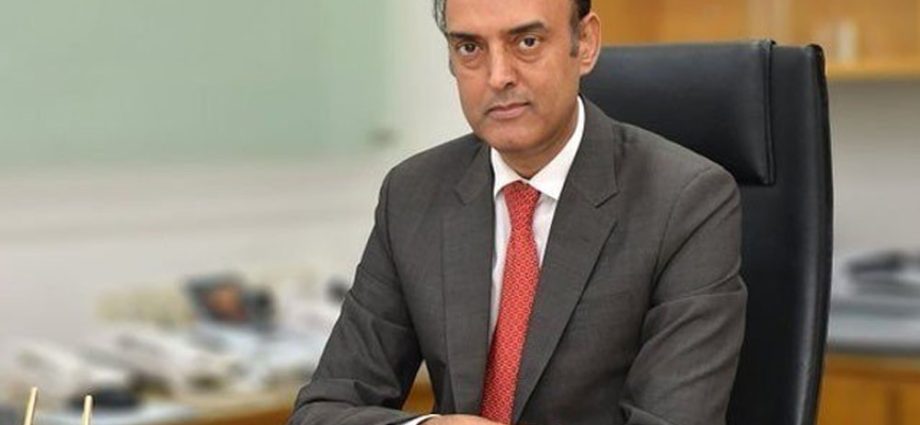SBP Governor Jameel Ahmed announces decision meeting of Monetary Policy Committee
Inflation is expected to mostly remain in the range of 5–7pc
SBP Governor Jameel Ahmad announced the first monetary policy of fiscal year 2025-26 at a press conference in Karachi.
The governor said the Monetary Policy Committee decided to keep the interest rate unchanged at 11pc.
He said that inflation had started to rise again in April, and this upward trend continued in June and July. Considering the potential hike in electricity prices, the decision to maintain the current interest rate was taken, he held.
The inflation rate is expected to remain between 5 to 7 percent, which is within the target range, he added.
“Country’s imports are increasing compared to last year, which is why the current account is likely to remain in deficit,” he added.
Jameel Ahmed also noted that national exports have increased by 4% compared to last year. Additionally, by controlling the exchange rate, remittances have increased by $8 billion.
Speaking on the current account, he said it was in a very poor state in 2022. However, due to gradual improvements, it turned into a surplus after 14 years, reaching a high level. Despite external debt payments, foreign exchange reserves have improved and have now exceeded $14 billion, he maintained.
He stated that the current account deficit could range between zero and one percent. Remittances this year are projected to reach up to $40 billion. As for economic growth, the national GDP could remain between 3.25% and 4.25%, but it will largely depend on the performance of the agriculture sector.
The Monetary Policy Committee noted that inflation in June 2025 decelerated to 3.2 percent y/y, led mainly by lower food prices, whereas core inflation also declined slightly.
However, the committee noted that the inflation outlook has somewhat worsened in the wake of higher than anticipated adjustment in energy prices, especially gas tariffs. Nonetheless, inflation is projected to stabilize in the target range going forward.
Moreover, economic activity is gaining further traction amidst the still-unfolding impact of the earlier reductions in the policy rate. At the same time, the Committee noted that the trade deficit is expected to widen further in FY26 amidst the pickup in economic activity and slowdown in global trade.
“Given this macroeconomic outlook and the emerging risks, the MPC considered today’s decision as necessary to ensure price stability,” reads the press release.
The committee also noted the key developments since its last meeting. It noted that the SBP’s foreign exchange reserves crossed $14 billion on the back of improved financial inflows and a current account surplus.
“Second, the recent upgrade in Pakistan’s sovereign credit rating led to a decline in Eurobond yields and narrowed CDS spreads in international markets. Third, inflation expectations increased slightly for consumers but declined for businesses in the latest sentiment surveys. Fourth, FBR tax revenue for FY25 was recorded at Rs11.7 trillion, which fell short of the revised estimate by around Rs200 billion. Lastly, global oil prices remained volatile, whereas metal prices increased. At the same time, the impact of global trade tariffs remained uncertain, prompting central banks to maintain their cautious monetary policy stance.”
In view of these developments and potential risks, the Committee assessed that the real policy rate should continue to be adequately positive to stabilize inflation in the target range of 5 – 7 percent.
The MPC emphasized on the need to continue the ongoing prudent monetary and fiscal policy mix to sustain macroeconomic stability.
Earlier, the business and Industrial community of Karachi, emphasising the significance of lower policy rate in boosting economic activities in the country, had reiterated their demand to slash the policy rate down into single digit viz-a-viz inflation.
Federation of Pakistan Chambers of Commerce and Industry (FPCCI), Karachi Chamber of Commerce and Industry (KCCI), North Karachi Association of Trade and Industry (NKATI) and several other chambers and associations of the business community, in separate statements, demanded significant reduction in the policy rate to foster industrialization, boost exports, promote competitiveness and uplift the national economy.

